HaUI Prepares to Train Skilled Workforce for the Semiconductor Industry
In alignment with Vietnam's goal of becoming a key player in the global semiconductor industry, Hanoi University of Industry (HaUI) is taking significant steps to prepare its educational and research programs to meet the demands of this fast-evolving sector.
This preparation is crucial to support the national "Human Resources Development Program for the Semiconductor Industry" which is expected to advance through 2030, with a vision extending to 2050. Dr. Hoang Manh Kha, Dean of the Faculty of Electronic Engineering at HaUI, has affirmed that the university is well-equipped to meet the challenges posed by this industry, backed by the Vietnamese government’s investments in semiconductor laboratories at HaUI.
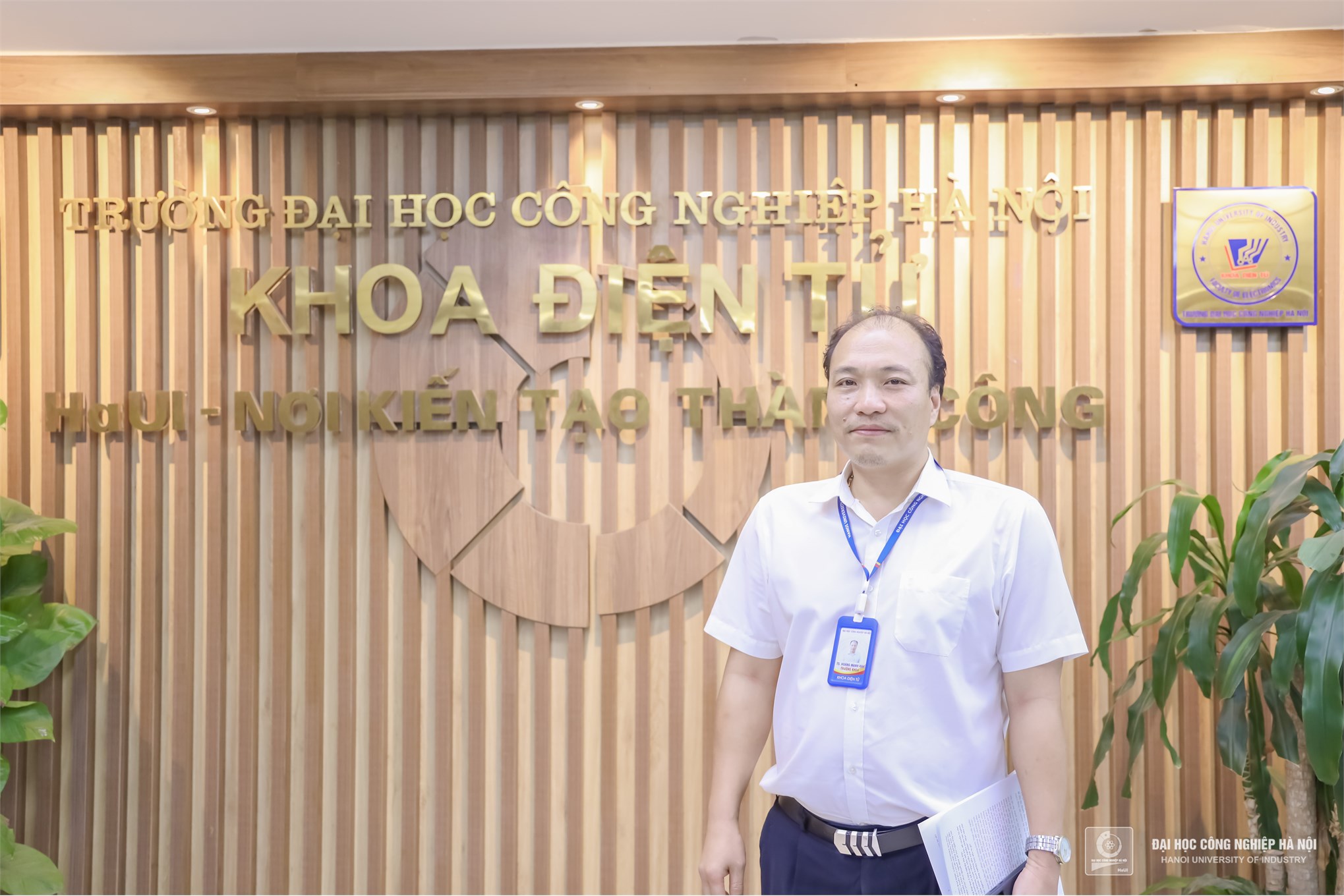 Dr. Hoang Manh Kha, Dean of the Faculty of Electronic Engineering at HaUI
Dr. Hoang Manh Kha, Dean of the Faculty of Electronic Engineering at HaUI
Comprehensive Training for Semiconductor Microchip Development
Beginning in 2022, HaUI integrated semiconductor microchip design into various undergraduate programs, including those in Electronics and Biomedical Engineering. By 2024, the university launched a specialized training program aimed at developing engineers proficient in semiconductor microchip design and testing. These efforts are also aligned with the 2018 Vietnamese National Education Curriculum, ensuring HaUI students receive up-to-date training that includes elective courses focused on semiconductor technology.
Partnerships play a pivotal role in enhancing HaUI’s programs. The university has fostered relationships with leading firms in the semiconductor industry, including Dolphin, Qorvo, Synopsys, and ETA. These collaborations have not only helped update the curriculum but also provided students with internship opportunities, co-supervised graduation projects, and facilitated job placements. Additionally, HaUI incorporates input from industry experts and integrates hands-on instruction by combining its faculty's knowledge with that of professionals from top semiconductor companies.
International cooperation is another essential aspect of HaUI’s strategy. The university is exploring joint training initiatives with institutions like Ming Chi University of Science and Technology in Taiwan. This collaboration promises to enrich student's learning experiences and advance the expertise of HaUI’s teaching staff in semiconductor technologies.
Developing a Skilled Faculty and Research Capabilities
At the core of HaUI’s drive to become a leader in semiconductor education is its commitment to faculty development. The university has prioritized sending its lecturers to participate in international conferences, workshops, and short training programs related to microchip design, assembly, and testing. Programs like those provided by NIC and Cadence Siemens are examples of such efforts. HaUI has also sent faculty members abroad for PhD-level training to specialize in semiconductor fields, ensuring the continuous advancement of its academic staff.
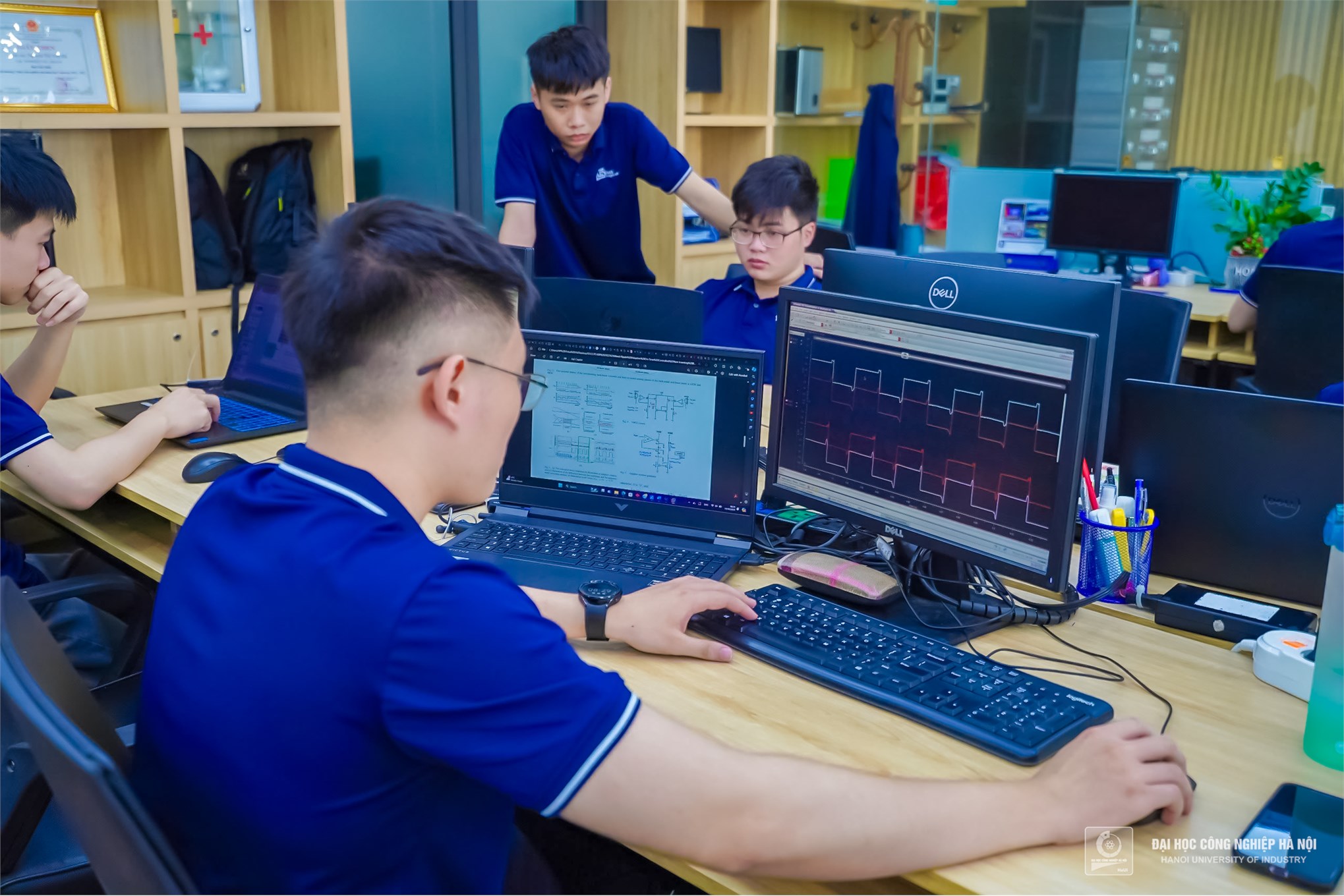
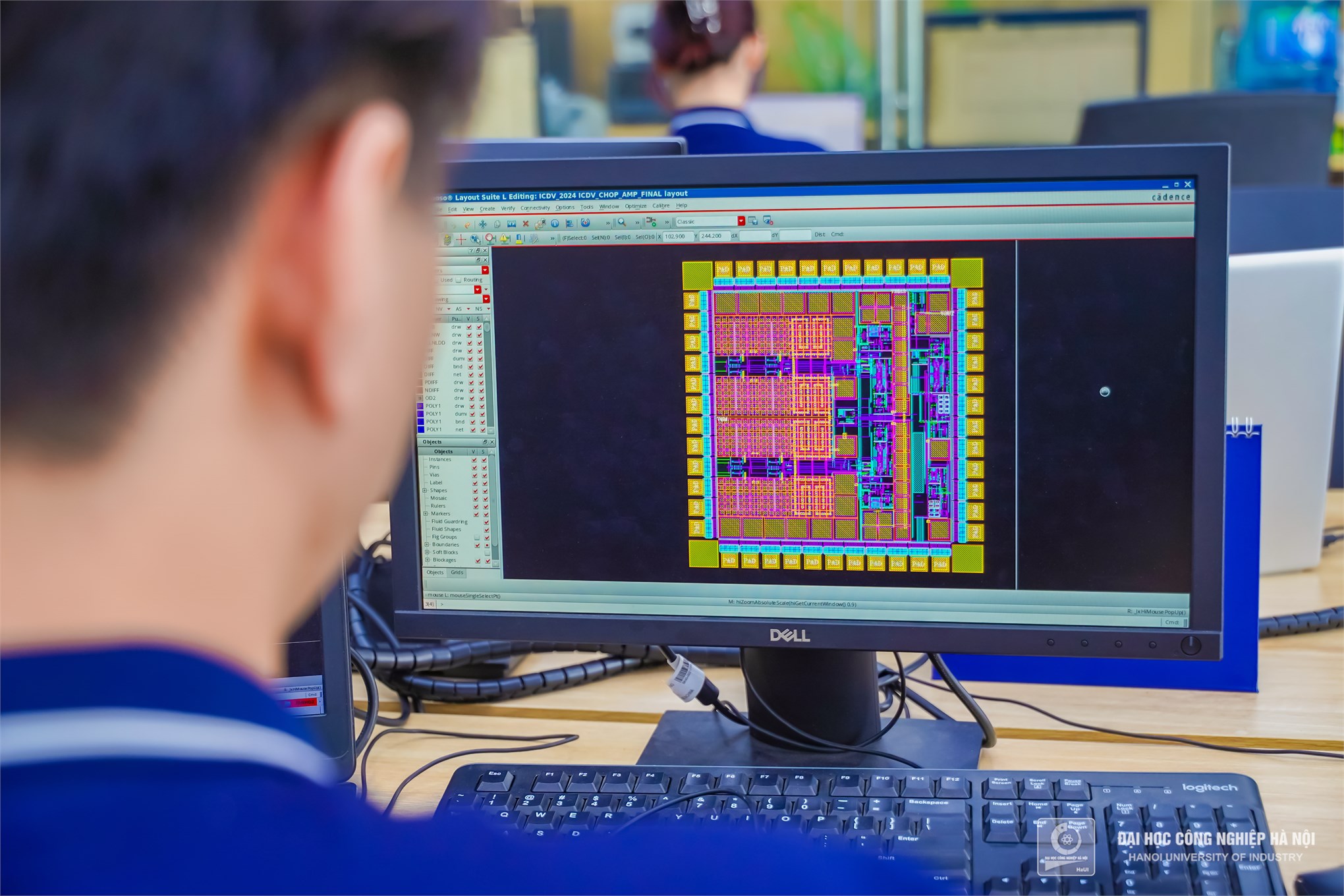 HaUI students have the opportunity to gain hands-on experience with updated technologies in modern laboratories
HaUI students have the opportunity to gain hands-on experience with updated technologies in modern laboratories
Moreover, the university has implemented a recruitment policy aimed at attracting high-caliber lecturers and researchers, including those with impressive scientific publication records. In tandem with this, HaUI’s Electronics Faculty has established a specialized research group focused on semiconductor microchip design. The group has led various scientific projects, training students with solid expertise in this field. Notably, several recent graduates have pursued advanced studies in European microchip research labs or have been awarded scholarships by the Japanese government for master’s programs in microchip design. Many HaUI graduates have secured positions at prestigious semiconductor firms such as Qorvo, Dolphin, Synopsys, and ETA, and have even advanced into managerial roles at companies like Amkor and Hana Micron, specializing in microchip packaging and testing.
Infrastructure Investments for Semiconductor Education
To support its efforts in semiconductor education, HaUI has heavily invested in essential equipment across multiple fields related to the semiconductor industry, such as electronics, automation, information technology, and mechanical engineering. The university is also working closely with the National Innovation Center (NIC) and major corporations like Cadence and Siemens to secure donations of microchip design tools.
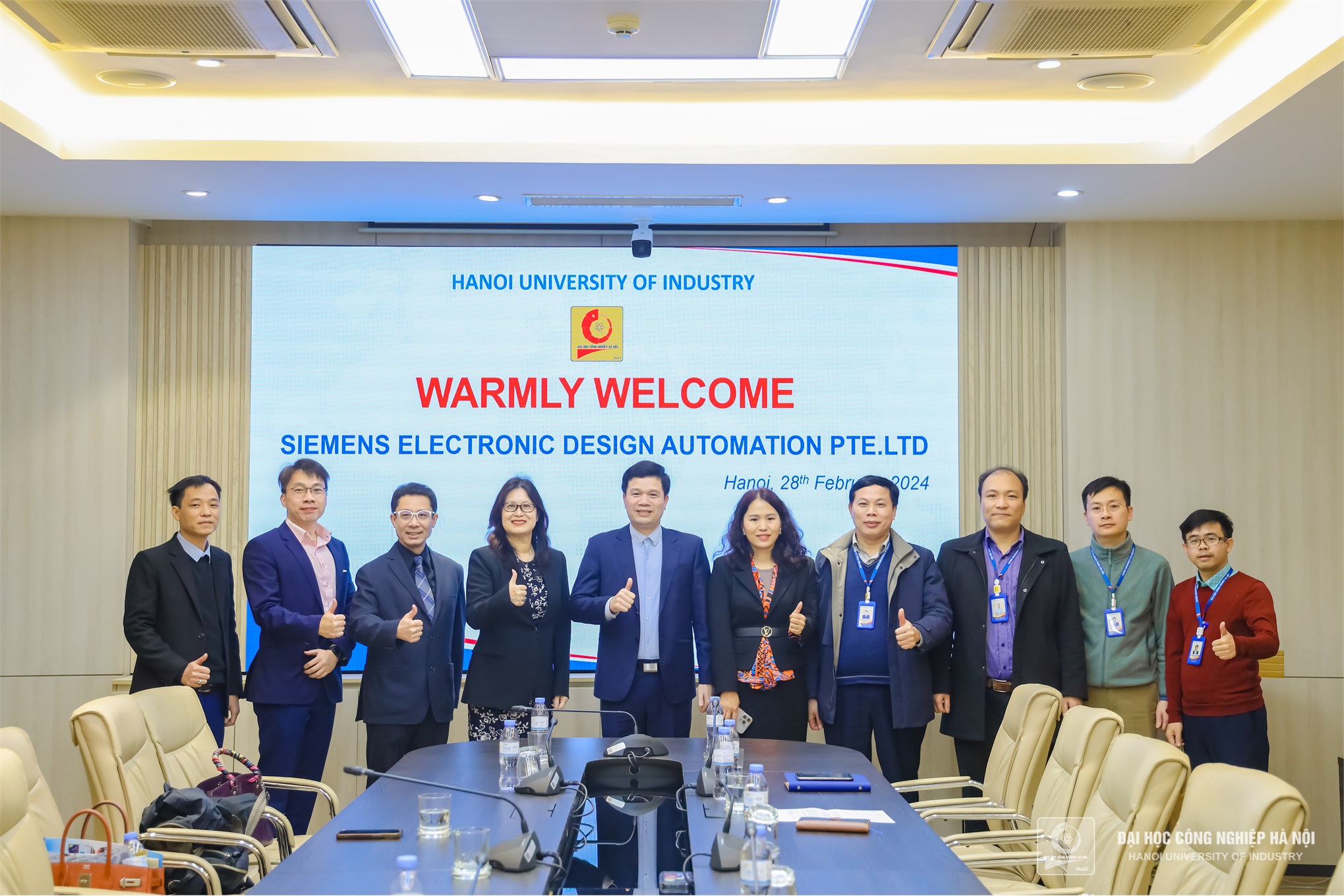 Siemens accompanies HaUI in the process of training high-quality human resources
Siemens accompanies HaUI in the process of training high-quality human resources
HaUI’s training programs in electronics, telecommunications, electrical engineering, and computer science have already achieved ABET (Accreditation Board for Engineering and Technology) accreditation, a prestigious certification recognized by numerous countries worldwide. This accreditation affirms the high quality of HaUI’s programs and reinforces the university's standing as a leader in educating skilled professionals for the global semiconductor industry. To maintain this standard, HaUI ensures its curricula remain compatible with leading international programs and adapt to the evolving demands of the global semiconductor supply chain.
Efficient Use of Government Resources for Semiconductor Training
As one of 18 universities in Vietnam to receive government investments for semiconductor labs, HaUI is fully aware of its responsibility to utilize these resources efficiently. The university leadership has been actively reviewing its existing infrastructure and collaborating with top institutions from countries like the U.S., the EU, South Korea, and Taiwan. This thorough evaluation will guide HaUI’s proposals to upgrade its semiconductor labs to ensure the most effective use of state funding.
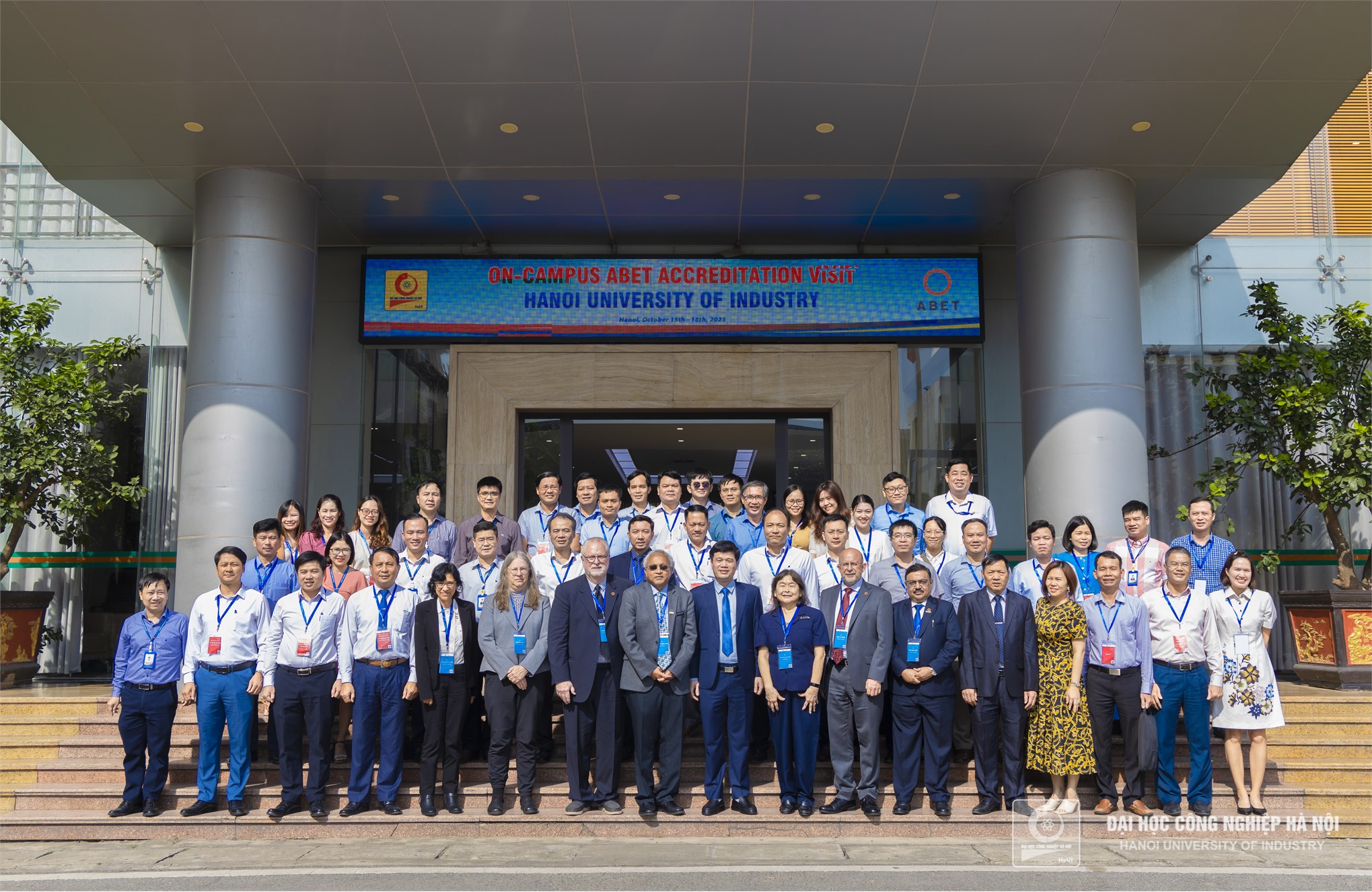 HaUI has achieved a significant milestone in its educational development, with five of its training programs meeting the rigorous standards of ABET
HaUI has achieved a significant milestone in its educational development, with five of its training programs meeting the rigorous standards of ABET
In a strategic move, HaUI is also forming alliances with neighboring educational institutions, seeking to share resources and expertise in training and research. By pooling equipment and knowledge, this partnership aims to maximize the effectiveness of both human and technological assets.
A Vision for the Future
With strong backing from the government, collaborations with leading global companies, and international academic partnerships, HaUI is continually improving its programs to ensure it remains at the forefront of semiconductor education in Vietnam. Through these efforts, the university aims not only to train the next generation of skilled engineers but also to position Vietnam as a crucial player in the global semiconductor industry.
HaUI’s dedication to training highly qualified semiconductor engineers will help the country join the global semiconductor value chain, contributing to Vietnam's growing prominence in the global technology landscape.
-
Thứ Tư, 14:14 09/10/2024

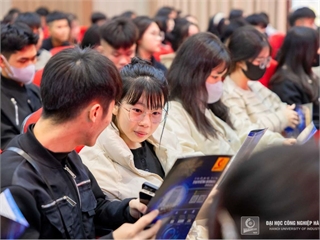
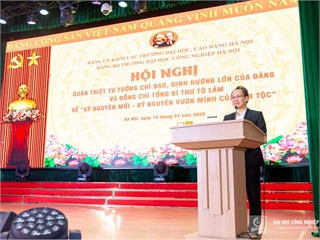

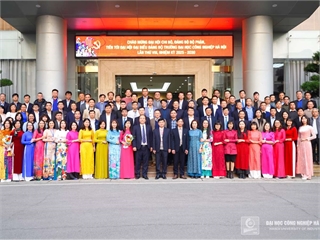


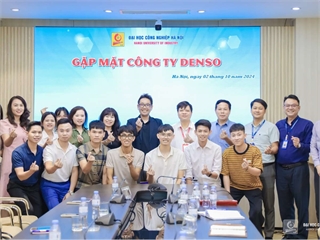
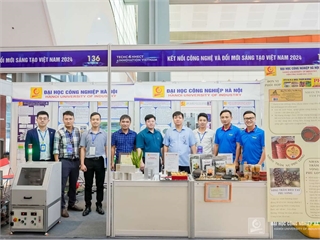
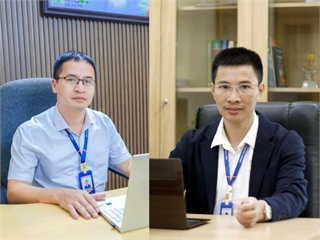
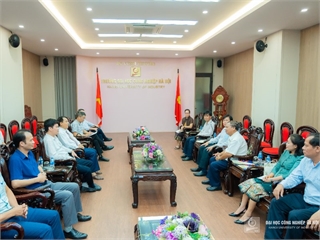
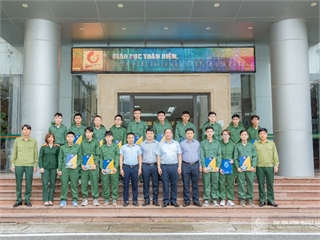
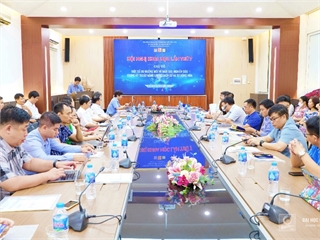
![[LIVESTREAM] Hiểu đúng ngành, chọn đúng nghề - Tư vấn chuyên sâu nhóm ngành Điện, Điện tử](https://www.haui.edu.vn/media/84/m84969.jpg)
![[LIVESTREAM] Hiểu đúng ngành, chọn đúng nghề - Tư vấn chuyên sâu nhóm ngành Ngôn ngữ, Văn hóa, Du lịch & Khách sạn](https://www.haui.edu.vn/media/84/m84967.jpg)